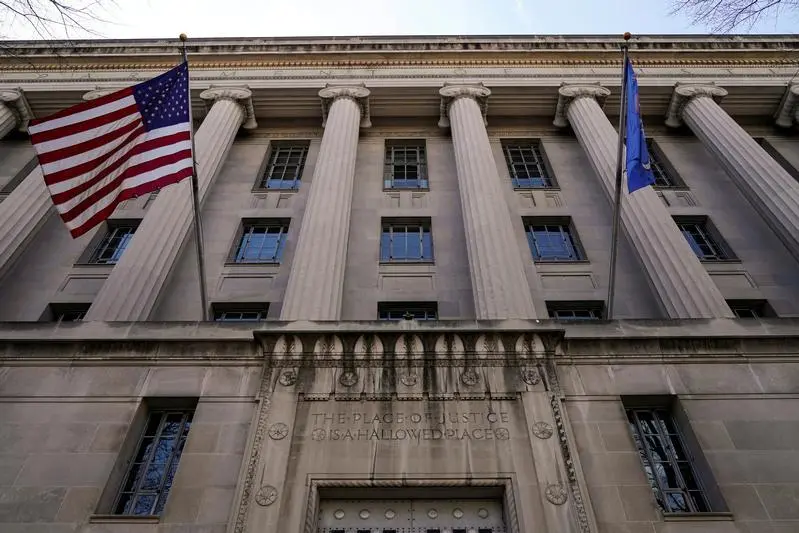PHOTO
NEW YORK - The Department of Justice likes elephants—to borrow the term investor Warren Buffett uses to describe big companies. It went after telecom giant AT&T twice and it's scrutinizing the merger of rivals T-Mobile US and Sprint. But its attempt to block the merger of two printing firms shows that mice-like companies can attract attention too. The ability to think big as well as small should worry the giant technology firms that are likely to be the next generation of antitrust targets.
The watchdog on Thursday sued to stop a $1.4 billion merger of two book printers, Quad/Graphics and LSC Communications, in a case that in some ways is straight out of the 1980s. Antitrust chief Makan Delrahim frets the two could hike prices for publishers of magazines and catalogs. The companies haven’t helped themselves: LSC’s chief executive claimed the deal could achieve “pricing stability,” according to the DOJ complaint. LSC shares fell a quarter on Friday.
What does this mean for Silicon Valley firms also in the crosshairs of competition regulators Apple and Alphabet subsidiary Google were recently put under the purview of the DOJ for potential reviews, with Facebook FB.O and Amazon handed to the Federal Trade Commission. On one hand, this case might look like a good omen. Facebook and Google offer free products so in theory, raising prices isn’t a problem. Amazon presents itself as a champion of cheapness and choice.
But there’s one reason they ought to worry. The DOJ took a surprisingly narrow view of the printers’ markets. While printing is fragmented, trustbusters zoomed in on educational books made for major producers, for example, arguing that non-major producers are a different constituency. There’s talk of market share in “web offset presses” and “rotogravure presses.” That kind of slicing and dicing may not be good for tech companies, who can be small compared with traditional markets but big in new ones. Think of Lyft and Uber Technologies. They have a tiny slice of overall transportation but dominate ride sharing.
The challenge for regulators isn’t just to show clout but also that harm is being done. The printing merger doesn’t much help there. But the watchdogs have plenty of time to dig into that more nebulous topic. In the meantime, the fact they can focus narrowly as well as broadly gives an inkling of what might be in store.
On Twitter https://twitter.com/jennifersaba
CONTEXT NEWS
- The U.S. Department of Justice sued on June 20 to block the $1.4 billion merger between Quad/Graphics and LSC Communications. The regulator alleges it will raise prices and consolidate competition. The two firms serve the newspaper, magazine and publishing industry.
- LSC said in a statement it believes the DOJ reached the wrong conclusion and that along with Quad will fight the lawsuit.
- For previous columns by the author, Reuters customers can click on SABA/
- SIGN UP FOR BREAKINGVIEWS EMAIL ALERTS http://bit.ly/BVsubscribe
(Editing by John Foley and Amanda Gomez) ((jennifer.saba@thomsonreuters.com; Reuters Messaging: jennifer.saba.thomsonreuters.com@reuters.net))





















